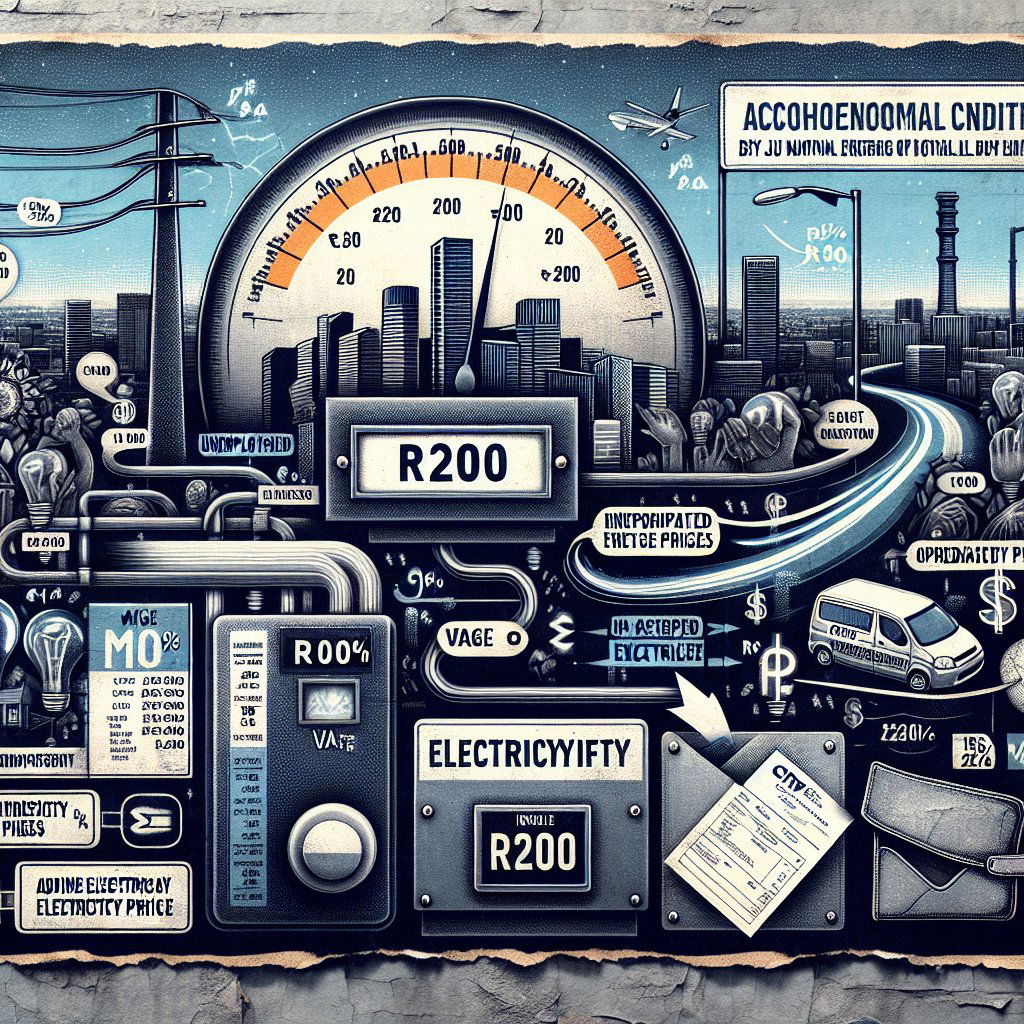Image created by AI
City Power's Controversial Prepaid Electricity Charges – A Burden on Johannesburg's Marginalised
In Johannesburg, South Africa, City Power’s latest announcement to impose a R200 monthly charge on prepaid electricity users is not just a financial decision—it is a reflection of the broader socioeconomic turmoil facing the citizens. This new fee, effective July 1, places additional financial pressure on a population already grappling with unemployment, stagnant wages, and increased living costs.
The backdrop of the upcoming May 29 elections has not quelled the economic hardships manifesting through inflation and municipal rate increases. The recent tariff hikes by the National Energy Regulator of South Africa (NERSA) have raised the average electricity cost from R1.84 to R2.07 per kilowatt-hour, contributing to a dramatic 450% price surge since 2008 against a contrasting 98% inflation rate.
As the City of Johannesburg's utility provider, City Power has implemented these monthly fixed charges—excluding the 15% value-added tax—for its 250,000 prepaid residential customers. This move attempts to recover the costs of delivering electricity, which have thus far fallen short due to the lack of fixed charges for prepaid users.
The disparity in electricity rates between prepaid and postpaid consumers is stark with postpaid customers shouldering the brunt of the high electricity prices. From July, these customers will face R1,230 in fixed charges before consuming any power. City Power has proposed an increase in fixed charges for prepaid customers in subsequent years to equalize the discrepancy, a move that foreshadows even greater financial strain.
City Power's categorization of prepaid customers aims to protect the ‘indigent’—those earning less than R6,000 per month—by exempting them from the ongoing fixed charges. However, with an effort to disincentivize higher usage, the utility company has set a punitive rate for consumption above 500 kWh.
The 50 kWh of free basic electricity provided to low-income households by the municipalities is a mere token, insufficient to meet even basic needs. At a time when South Africa’s economic future is uncertain, and the country has lost its edge as a low-cost electricity provider, the need for affordable power is more acute than ever.
Renewable energy sources present a sustainable alternative, though initial investment costs may be high. Municipalities could seize this moment to pivot from their roles as electricity retailers to becoming energy generators, building microgrids that could stimulate the economy and promote local business ventures.
Diversifying revenue sources is imperative for municipalities to mitigate the impact of rate hikes on consumers. Embracing renewable energy could attract investment, support local economic development, and pave the way for a more resilient financial foundation for municipalities that does not disproportionately affect the marginalized.
The current scenario demands a balance between reasonable service charges and the provision of quality services. Municipalities must adopt business-like strategies, focusing on customer needs while maintaining profitable operations. Such a transformation in municipal service delivery is essential for aligning costs with quality and ensuring that the rights and needs of South African citizens are safeguarded.










